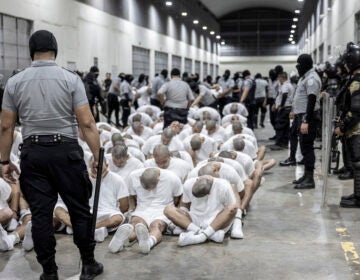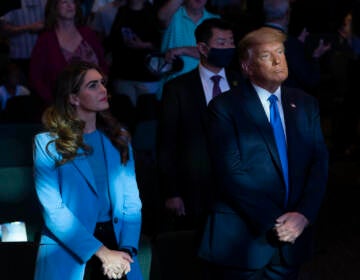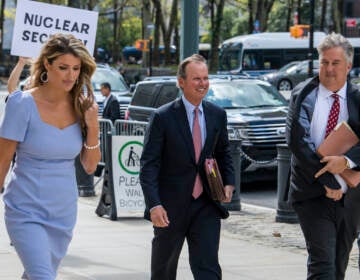Here’s where the criminal and civil cases facing Trump stand
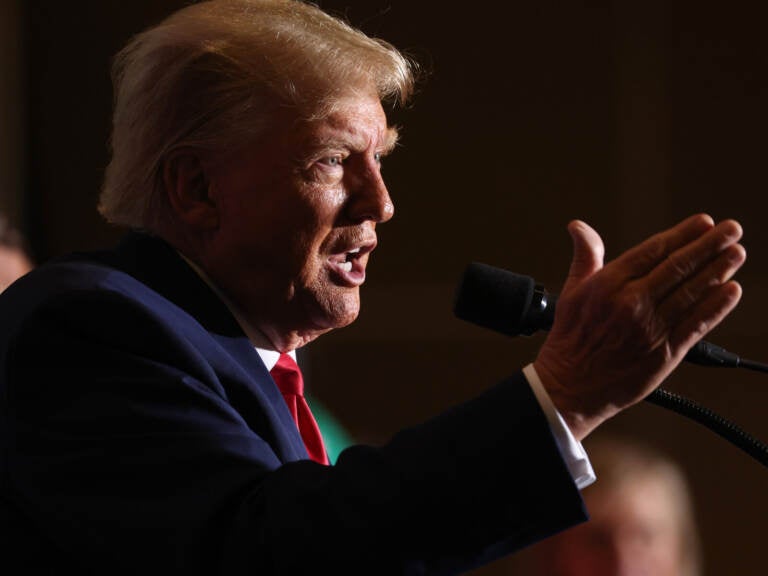
Former President Donald Trump speaks to supporters during a Farmers for Trump campaign event in Council Bluffs, Iowa on July 7. (Scott Olson/Getty Images)
Former President Donald Trump announced this week he’s received word that he’s a target of the grand jury investigation into efforts to overturn the results of the 2020 election.
Trump took to social media to say he could be federally charged related to the Jan. 6, 2021 siege on the U.S. Capitol.
If charges in the Jan. 6 case come to fruition, Trump, the first former president in United States history to be criminally indicted, will be facing numerous charges in three separate criminal cases in three states.
So far this year, Trump has been criminally indicted twice for crimes he allegedly committed before and after his presidency — all announced as he’s running for president again.
Trump has also been embroiled in civil lawsuits out of New York — one of which is tied to allegations he and close advisers to the Trump Organization (including his children) committed fraud.
Trump has pleaded not guilty in each of the criminal cases he’s been charged and says he is not liable in the other cases.
Criminal cases
The Mar-a-Lago classified documents case
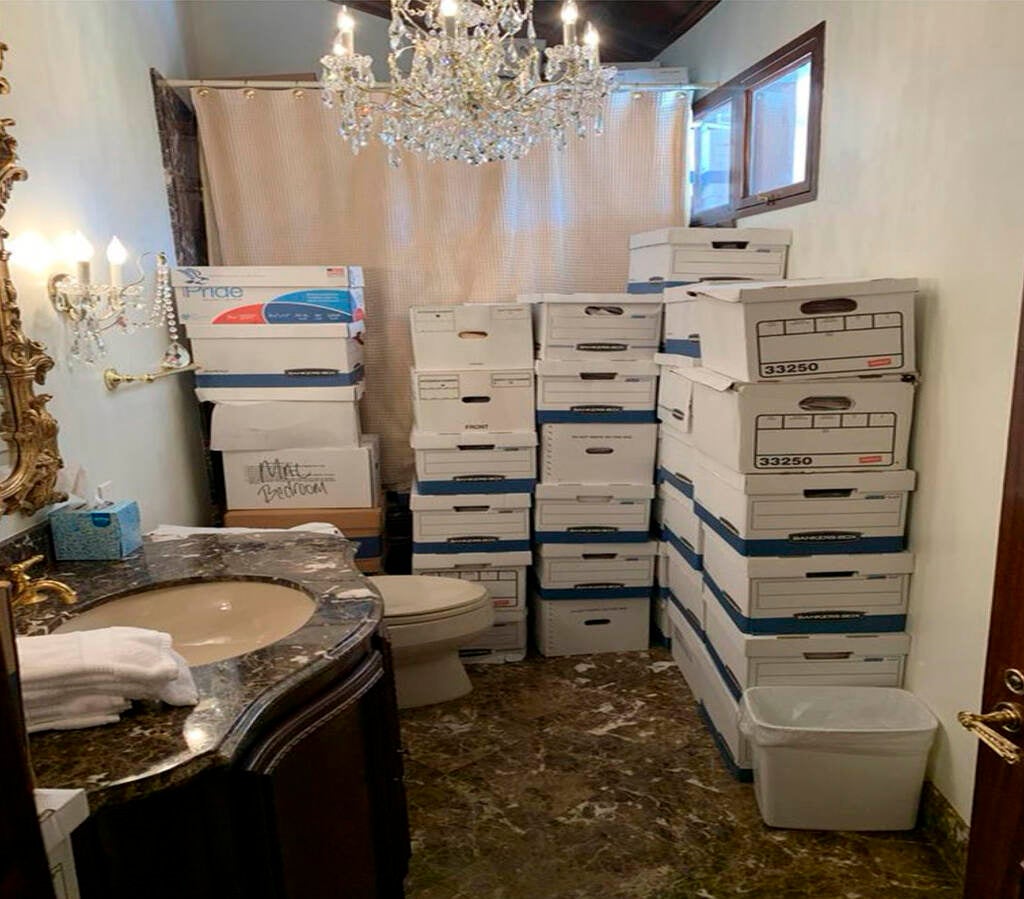
Number of charges: 37
Expected trial date: Waiting for U.S. District Judge Aileen Cannon to decide timing for a trial in Florida
Trump pleaded not guilty to 37 federal charges for allegedly storing dozens of classified documents at his Florida resort and then refusing to hand them over to the FBI and the National Archives.
Special counsel Jack Smith, who is also leading the investigation into the Jan. 6 charges against Trump, oversaw the probe into the documents case.
Federal prosecutors allege Trump had a direct hand in packing classified documents when he left the White House in 2021, that he then bragged about having these secret materials and pushed his own attorney to mislead federal law enforcement about what kind of documents he had in his resort.
Prosecutors have told Judge Cannon they want Trump’s trial to begin on December 11. It’s expected that legal filings by Trump’s team will delay the schedule and potentially push back any trial into 2024. His legal team is working to get the trial pushed back until after the 2024 presidential election. At a pretrial hearing on July 18 Cannon said she would issue an order soon outlining an appropriate schedule.
Trump aide Walt Nauta has also been indicted in this case. He pleaded not guilty in early July to charges that he conspired with the former president to withhold classified documents.
The Stormy Daniels hush money case
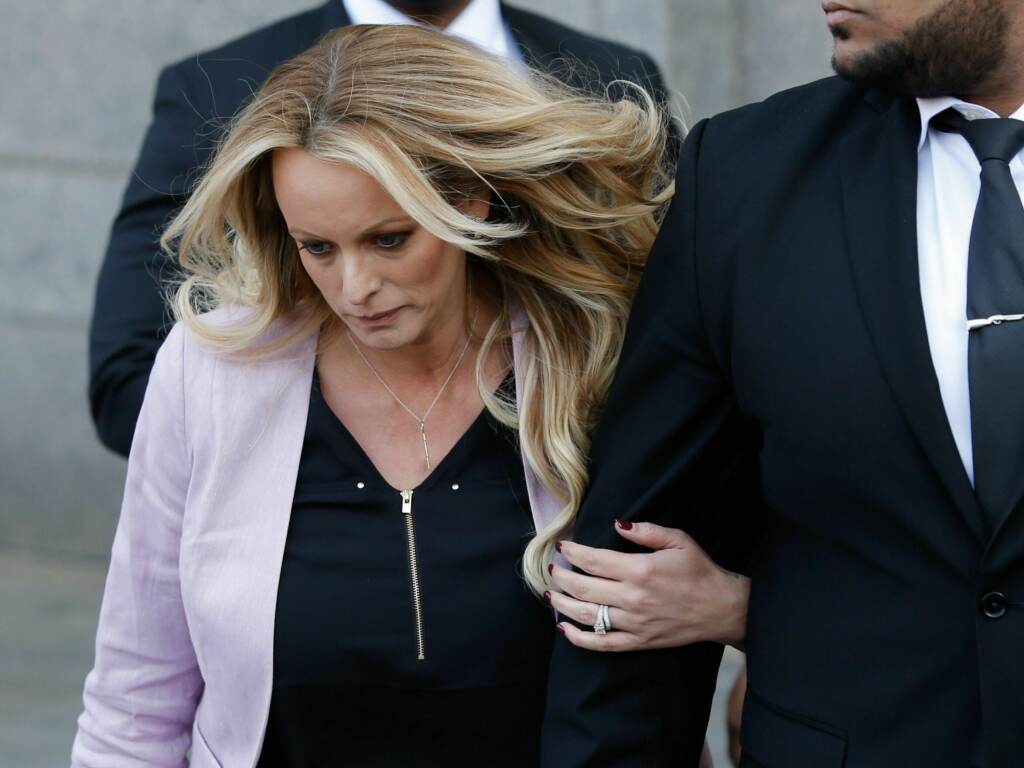
Number of charges: 34
Expected trial date: March 25, 2024 in New York
With this case, Trump became the first former president in United States history to be criminally indicted. The grand jury voted to indict Trump in March on 34 felony counts of business record falsification.
Allegations in this case go back to before Trump was elected president. They are tied to hush money payments made before the 2016 elections to the adult film star Stormy Daniels to cover up an alleged affair.
Daniels, whose legal name is Stephanie Clifford, has said that she and Trump had an affair in 2006. Following the launch of Trump’s campaign in 2016, Daniels offered to sell her story to gossip magazines. In October, National Enquirer executives friendly to Trump flagged this to Trump’s personal attorney, Michael Cohen.
Cohen agreed to pay $130,000 to Daniels to keep her silent. Her attorney received this money less than two weeks before the election. Cohen was later reimbursed $420,000 after Trump was elected president — which Trump has admitted to doing to pay off Daniels. Trump has long maintained he never had an affair with Daniels.
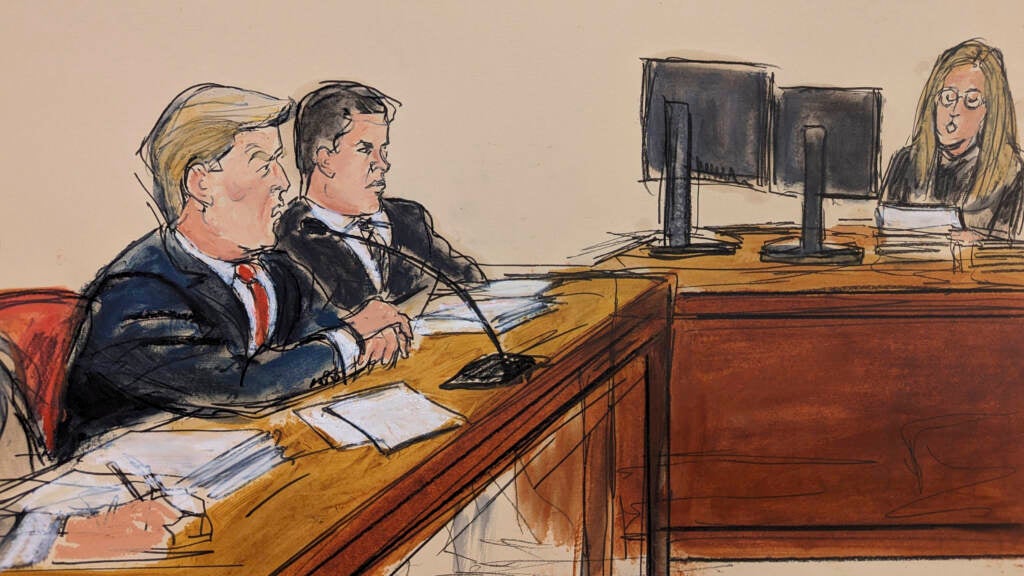
According to court records, executives with the Trump Organization categorized the reimbursements as a “retainer” for “legal services.”
One of Trump’s attorneys called the decision to prosecute the former president as “political persecution.” Trump himself has called District Attorney Alvin Bragg a racist for pursuing this case.
Ongoing criminal investigations
The Jan. 6 case
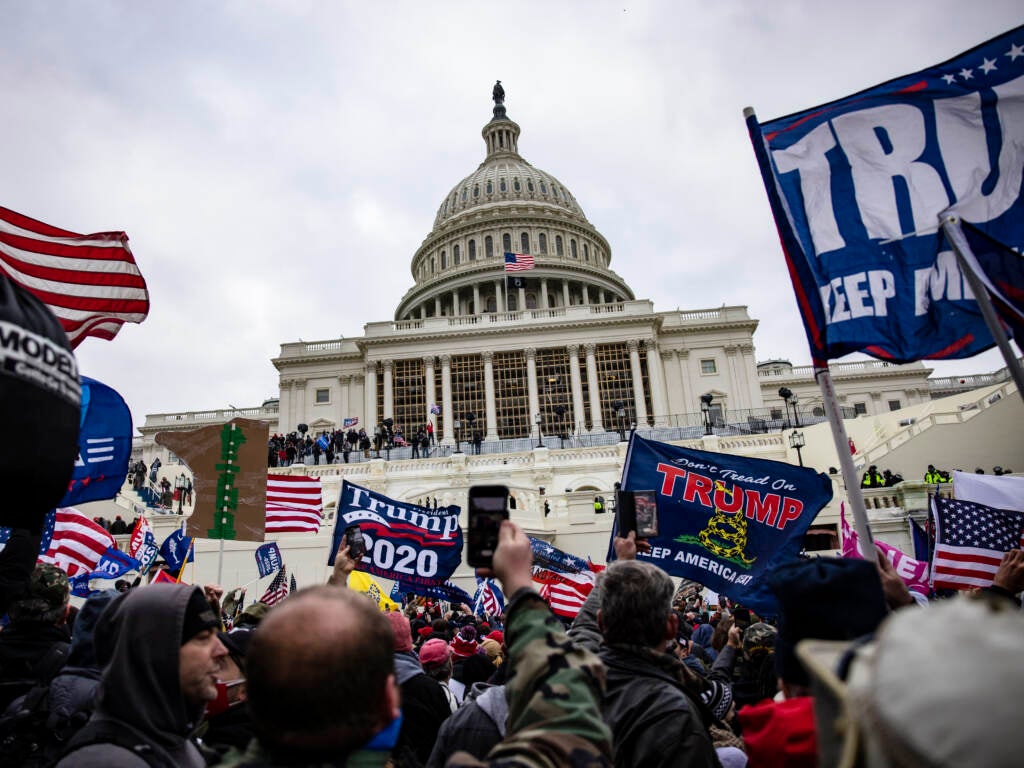
It’s unclear what any charges against Trump could entail.
Last December, the congressional Jan. 6 committee investigating the deadly riot at the U.S. Capitol referred Trump to the Justice Department for four criminal charges. That included obstruction of an official proceeding; conspiracy to defraud the United States; conspiracy to make a false statement; and conspiracy to defraud the U.S. by assisting, aiding or comforting those involved in an insurrection.
The committee, however, had no power over what the DOJ chose to do.
But a possible indictment from federal prosecutors could touch on attempts by Trump and his allies to pressure officials not to certify the 2020 election results or urging his supporters to “fight like hell” to stop Congress from certifying the result.
Trump spoke with his supporters during a rally in the hours leading up to the mob taking over the U.S. Capitol. In his speech, he told the thousands present “we must stop the steal.”
So far, investigators have reached deep into Trump’s inner circle, contacting former Vice President Mike Pence and the former president’s son-in-law to testify before the grand juries in Washington, D.C.
Secretaries of State in several states were also reportedly interviewed as part of the investigation into efforts to overturn the 2020 election. CNN reported recently that officials in seven key battleground states during the 2020 election, Georgia, New Mexico, Nevada, Michigan, Arizona, Pennsylvania and Wisconsin, that were targeted by Trump and his allies “to subvert the Electoral College” were subpoenaed.
Also, investigators have spoken with dozens of witnesses with knowledge of the final days of the Trump presidency and what he and his team might’ve done to prevent Biden from taking the White House.
Trump insiders embroiled in the federal investigation have also included attorneys John Eastman and Jeffrey Clark, who both had their phones taken by agents last year during the probe.
Georgia 2020 election interference
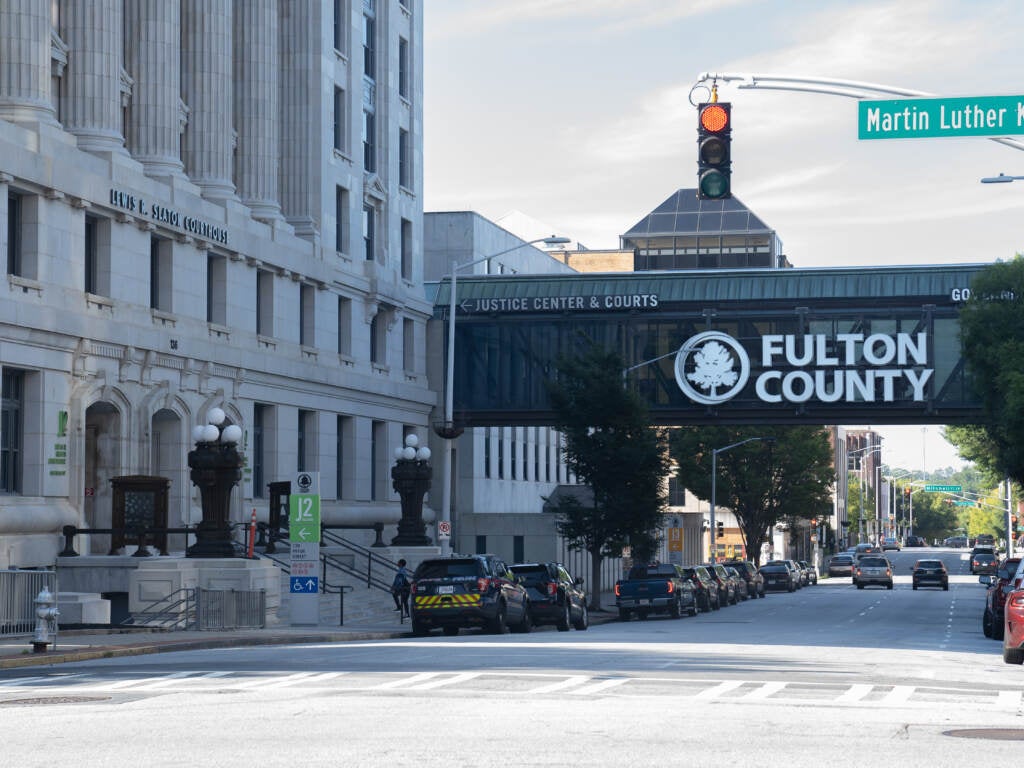
In Fulton County, Ga., which is home to Atlanta, District Attorney Fani Willis has impaneled a grand jury to investigate efforts by Trump and his allies to overturn 2020 election results in the state.
The criminal investigation was started by Willis after the publication of a phone call in January 2021 of Trump pressuring Georgia Secretary of State Brad Raffensperger to “find” ballots in support of Trump. This was after the former president narrowly lost the state to Joe Biden.
Trump has denied wrongdoing and still baselessly maintains there was large-scale voter fraud in Georgia during the 2020 presidential election.
Willis has suggested she’ll ask the grand jury for indictments later this summer, potentially as soon as August, and has told law enforcement to prep for a major public response.
Trump is also still fighting civil lawsuits
New York AG Letitia James’ suit against Trump for alleged fraud
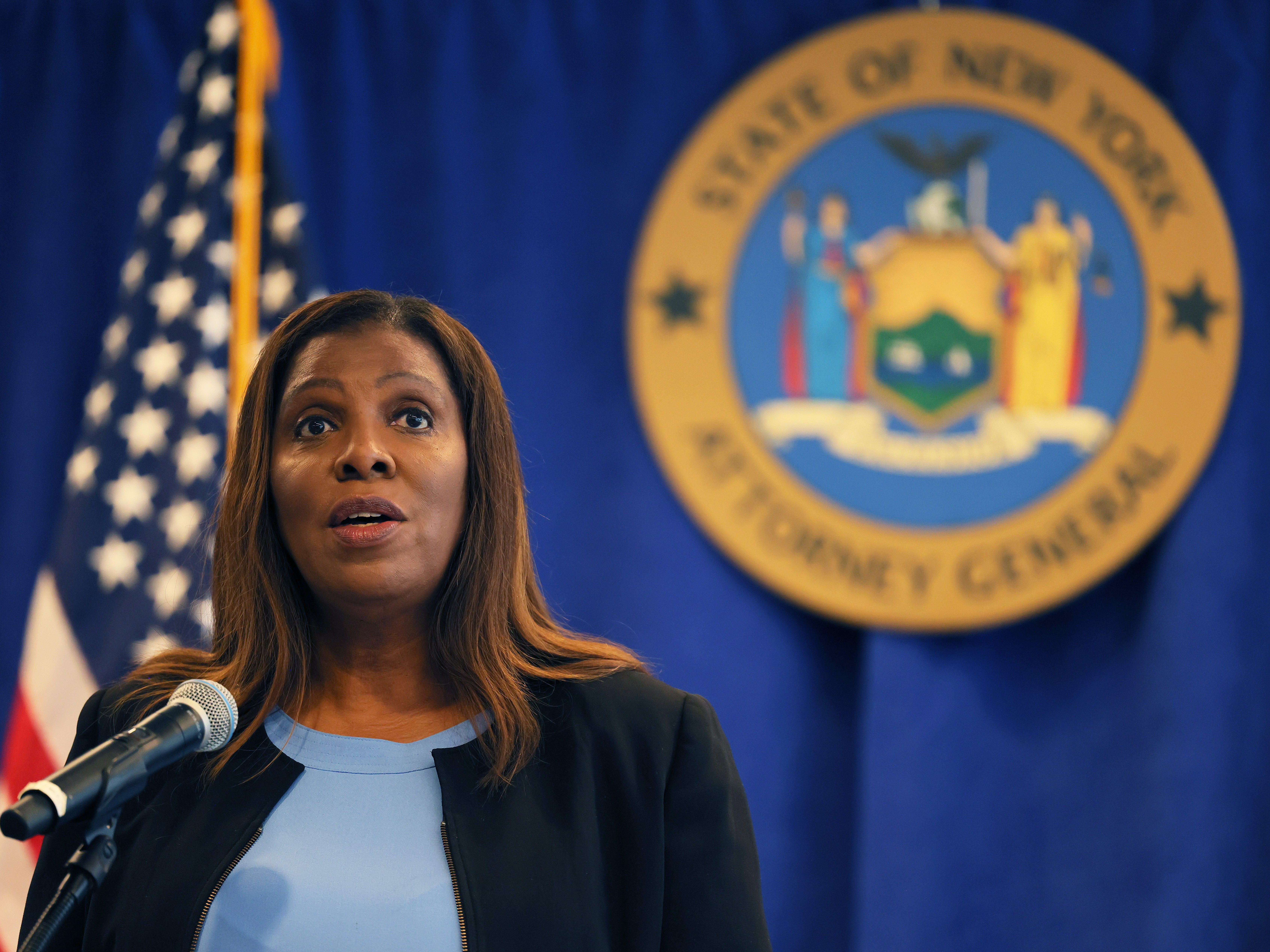
Expected trial date: Oct. 2, 2023 in New York
After a three-year investigation, New York Attorney General Letitia James filed a civil lawsuit against Trump, the Trump Organization’s executive team and three of his eldest children, last September.
The lawsuit claims that Trump committed fraud by inflating his net worth by billions of dollars in order to get richer.
The case against Trump’s oldest daughter, Ivanka Trump, has since been dropped.
James is seeking around $250 million in penalties and a ban on Trump, his kids and members of his executive team from operating businesses in the state of New York.
E. Jean Carroll case

Expected trial date: Jan. 15, 2024 in New York
In 2019, writer E. Jean Carroll first publicly came forward saying Trump had raped her in a department store dressing room in the 1990s when Trump was known as just a businessman. Trump responded then (and since), denying the accusation and saying that the writer had ulterior motives.
Carroll sued Trump — twice (in 2019 and later in 2022) — in large part for his alleged defamation.
The columnist filed the second lawsuit against Trump (this time for both defamation and rape) after the state of New York lifted the statute of limitations for survivors of sexual assault to file civil claims.
In May, a federal jury found Trump liable for battery and defamation in this second lawsuit. The jury in this case said he did sexually abuse the writer and defamed her when he denied her allegation.
Carroll was awarded $5 million in damages.
This week, a federal judge in New York rejected Trump’s motion for a new trial.
Trump’s legal team filed a counterclaim against Carroll in late June for defamation. In that suit, he claims Carroll defamed him during her appearance on CNN after the jury verdict. In that interview, she was asked about the verdict finding Trump sexually abused her, but that he didn’t rape her. Carroll responded, “Oh, yes he did.”
Carroll’s first lawsuit filed in 2019, referred to as Carroll I in the court, was filed for Trump’s early alleged defamatory statements. Following her victory in May, Carroll and her lawyers asked a court to expand the scope of the Carroll I case against Trump, seeking at least an additional $10 million in damages. That trial date is expected next year.


